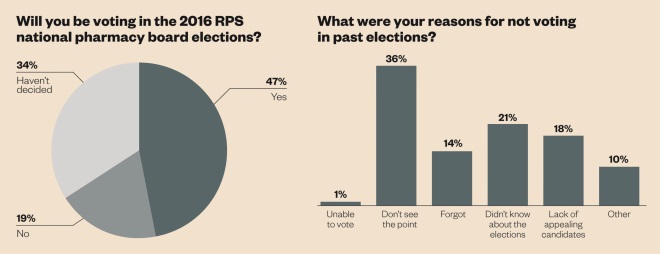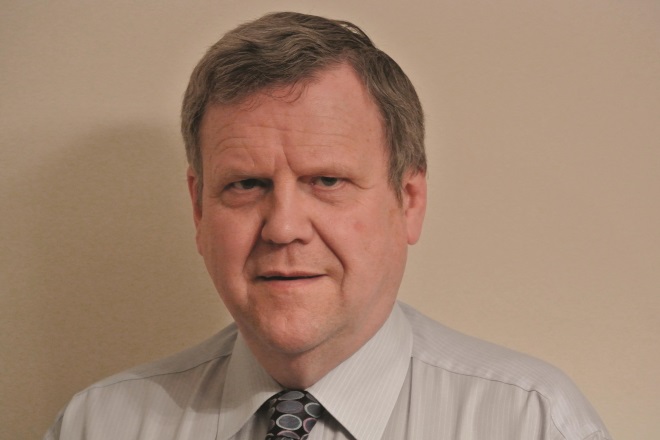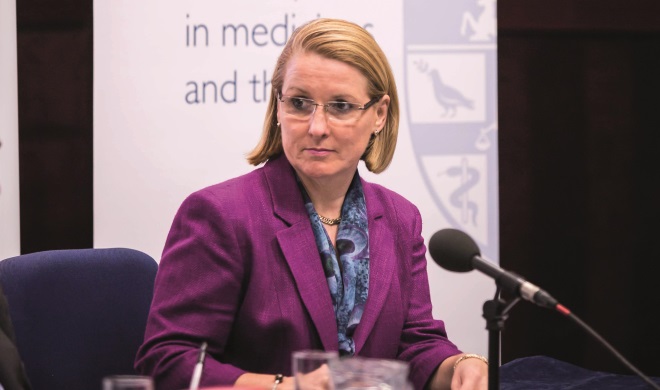
Shutterstock.com
With nominations for the 2016 Royal Pharmaceutical Society (RPS) national pharmacy board elections due to open in a matter of weeks, the RPS is gearing up its election campaign and reaching out to its membership to encourage them to vote and put themselves up for election. “Pharmacy is changing at a pace and in a way that it never has before,” says the director for England, Howard Duff. “We need high quality candidates who can grasp the strategic impact of the current Department of Health consultation on community pharmacy and the Carter review on hospital pharmacy.”
In 2016 there are 12 board places up for grabs: five in England, four in Wales and three in Scotland. All are non-sectoral apart from the three places in Wales so there is an opportunity for new candidates to stand for election and members to influence the strategic direction of the Society. We surveyed RPS members to better understand their views on the elections and then put their comments to current board members, some of whom are seeking re-election this year.
Disappointing voter turnout
In 2015, just 11.7% of the 22,567 Royal Pharmaceutical Society’s (RPS) members who were eligible voted in the RPS English Pharmacy Board elections. Although marginally higher than the previous year’s turnout of 9.33%, it was still considered too low. One letter from a member, published in The Pharmaceutical Journal
(2015;295:116), suggested that many RPS members felt “alienated” from the election process and that communication about the elections needed to increase. Another member suggested that low voter turnout and the elections in general should be discussed locally, such as within local practice forums (LPFs) (2015;294:661).
In January 2016, we contacted 6,780 RPS members to investigate what the membership think about the election process. Some 344 members responded to the emailed survey (a response rate of 5.1%), 80% of whom were practising pharmacists and 11% were students or preregistration trainees.

RPS national pharmacy board election survey
Source: The Pharmaceutical Journal
The Pharmaceutical Journal sent out a survey to 6,780 RPS members to gather their views on the RPS national pharmacy board elections. Total number of respondents = 344.
What would encourage you to vote in the RPS national pharmacy board elections?
“I want candidates to represent the real membership and not a small proportion of political lobbyists.”
“Hearing about candidates in my work place and how they might directly affect where I work.”
“Clear simple one side [of] A4 — why it matters and who the people are and why they want to do it — what is their vision and strategy?”
“I don’t vote due to lack of understanding and information about the issues or the people or where they stand. [There’s] no information about what previous candidates have achieved.”
“Change and support bought about by the Society to benefit pharmacists’ salary and standing in society.”
Of the practising pharmacists who responded to the survey, 47% said they would be voting in the upcoming 2016 RPS board elections, 19% said that they would not be voting, and 34% said they had not yet made up their minds (see graphic). While these figures appear to suggest an improvement in engagement compared with 2015, it is reasonable to say that RPS members who are willing to complete a survey about the election process may also be more likely to vote in the elections. Therefore, these figures may not be representative of the membership as a whole.
What cannot be disputed, however, are the reasons given by members to explain why they have chosen to vote, or not, in the past. Of those who chose not to, 35% said that they didn’t see the point, 20% didn’t know about the elections, 19% blamed it on a lack of appealing candidates, while 14% simply forgot. Other reasons for not voting included members feeling that there are no diverse, radical or different candidates and that the candidates did not represent the “real” membership of the RPS but were instead a “small proportion of political lobbyists” and “career politicians”.
“There remains some anxiety that the board may not reflect the membership,” says Tony West, a member of the English Pharmacy Board (EPB), “if the low turnouts continue there is a risk of candidates being returned on a single [pharmacy] issue – those that feel passionately about the issue go and vote, those who are not bothered tend not to vote.”
I see the role of the board member as representing pharmacists to the RPS and representing the RPS to pharmacists
For Rob Davies, a pharmacist on the Welsh Pharmacy Board (WPB), being on the board is not about politics but about giving pharmacists an opportunity to “be listened to” within the professional body. “I see the role of the board member as representing pharmacists to the RPS and representing the RPS to pharmacists,” he says.
Some RPS members felt they were not well enough informed about the candidates and what they stood for in the run up to the elections. Several members said they would value more information, with one suggesting “a little more communication — maybe via email” would encourage her to vote. Another member wanted to “see debates between candidates” in order to learn more about what they stood for.
While there are no face-to-face debates, candidates do have the opportunity to put forward their policy ideas in a written statement — and this year via video — for voters to consider. Candidates also have the opportunity to publish two letters on The Pharmaceutical Journal website and contribute to questions posed in the hustings on the RPS’s virtual networks. “This is very often the only time members become aware of the views of some of the candidates,” says Douglas Hancox, a retired member of the RPS, who contacted The Pharmaceutical Journal after seeing the survey. “Between elections, candidates are often unknown to many members.”
As a separate group, students and preregistration trainees were asked about whether or not they would vote once they qualify. Some 34% said they would vote in the RPS elections in the future, while 13% said they would not. They were also asked what would ultimately inspire them to vote and many of the students who responded highlighted that they would be encouraged by good publicity, promotion and plenty of information about the candidates and what support they can give to a student searching for employment.
‘How does it affect me?’
After sector-specific places on the boards in England and Wales were called into question, England followed Scotland by moving to a non-sectoral system in 2015 in a bid to encourage more people to put themselves up for election. However, some of the responses to our survey suggest that sectors are important to RPS members. Some respondents said their specialties did not have enough of a voice, with one member suggesting that there is currently “little hospital representation” on the boards and another posing the question “how does [the election] affect me?”.
No one individual or group have all the answers or power to solve all the problems in pharmacy, we all have a collective responsibility
Other members said that in order to be encouraged to engage more with the elections they wanted to see the RPS do more. One member called for “a more active Society that does more to improve the prospects of its members and promotes the profession as a whole”, while another felt that pharmacists are “still the poor relation of the NHS — just asked to do more for less as always” and wanted to see the RPS doing more to change this. Another said they wanted to see the Society offering more support to “pharmacists under attack in regards to jobs and job security”. This suggests that while some members are passionate about their roles as pharmacists, they do not believe that voting in the RPS elections will help them with the wider issues they are facing.

Source: Royal Pharmaceutical Society
Richard Evans has been a member of the RPS Welsh Pharmacy Board since 2007 and says that his role has given him the opportunity to “raise the profile of pharmacy amongst the general public”
For Richard Evans, a member of WPB since 2007, being on the board enables him to have a voice on wider pharmacy issues. “I am able to be involved in discussions that set the standards for pharmacy, helping develop my own practice and raise the profile of pharmacy amongst the general public and decision makers, including Welsh government,” he says.
“No one individual or group have all the answers or power to solve all the problems in pharmacy, we all have a collective responsibility,” says Jonathan Burton, member of the Scottish Pharmacy board (SPB), “The Society is a group of professionals, not a building in London or a faceless organisation, it’s us.”

Source: Royal Pharmaceutical Society
Sibby Buckle, public affairs lead on the English Pharmacy Board says the board are “still pushing for decriminalisation of single dispensing errors and will continue until the law is changed”
Sibby Buckle, public affairs lead on the EPB says: “[Our] activity may not always be at the front of the pharmacy or in the national media, but we passionately care about you. We are still pushing for decriminalisation of single dispensing errors and will continue until the law is changed.”
Some members confessed to feeling “increasingly dispirited”, “disillusioned” by and “detached” from the Society and said they need more “decisive” leadership from the RPS.
“I do understand disengagement with the elections,” says Burton, “but I would urge members to please vote and then hold us to account.
“It’s right that RPS members can challenge the board about the direction the Society is heading. It’s our responsibility as board members to listen and try to make things better,” he adds.
I do understand disengagement with the elections but I would urge members to please vote and then hold us to account
“The lack of major issues facing the RPS and profession has been advanced as one reason for a low voter turnout in recent years,” says Hancox. However, he points out that following the recent letter from the Department of Health announcing a 6% cut to contractual funding for community pharmacy services in 2016-2017, “this possible reason for a low voter turnout will not be a factor in the forthcoming elections”.
Voting to shape the future of pharmacy
On the other side of the coin, some members expressed their enthusiasm for voting in the elections in order “to influence the future”, “encourage democracy” and have their “opinions heard”. They were also keen to “encourage visionary leaders” and ensure “strong leadership of the profession” and the “best representation” for community and hospital pharmacy. Some said they were worried about the RPS’s “detachment” from areas of pharmacy such as community pharmacy and wanted to “help shape the future of pharmacy”.
Many members said that voting was an important right to be exercised, “you can’t moan about anything if you don’t take part in the democratic process,” said one member, and this was echoed by several others.
Responses to the survey highlighted that some members who previously voted no longer engage. Reasons for this included claims that the voting process was too difficult, candidates weren’t prominent enough, or members no longer felt that voting would make a difference to their work. For those who had gone the other way and now vote when they previously did not, reasons included that they “now appreciate the service being rendered by the RPS” and want to become more active as a member.
Participating in elections
Each year the RPS sends out a call for RPS members and Fellows to run for election, subject to certain requirements. Each elected member sits on the board for a three-year period.
If you feel you have something to contribute to the leadership of the RPS and the direction of travel of the pharmacy profession you will be able to make a difference
Out of the practising pharmacists who answered the survey, 20% said they would consider participating in the RPS elections but 58% said they wouldn’t.
“I stood for election because I wanted to have a say in the development of our profession,” says chair of the Scottish Pharmacy Board John McAnaw. “Being on the board provides the opportunity to engage with politicians, influence the Scottish health system, and champion the role of the pharmacist in all settings,” he adds.

Source: Royal Pharmaceutical Society
Sid Dajani, member of the RPS English Pharmacy Board, says being on the board can enable individuals to “contribute to a better future” for the pharmacy profession
Sid Dajani, a member of the EPB and Society treasurer for the past five years, works in his own pharmacy near Southampton as well as owning several businesses outside pharmacy. “The amount of paperwork I read for the RPS is equivalent to wading through War and Peace eight times a year,” says Dajani. However, he insists it is possible to achieve a healthy balance. “Many of us have young families and I work with [board members who are] open water divers, pilots, horse riders and marathon runners,” he says. “Each individual can contribute to a better future and you develop skills that help you improve yourself.”
“Being on the board can be challenging, however, it is also genuinely rewarding,” says Ewan Black, a member of the SPB and a superintendent in a community pharmacy firm. “If you feel you have something to contribute to the leadership of the RPS and the direction of travel of the pharmacy profession you will be able to make a difference.”
So as the countdown to the elections begins, now is the time for RPS members to consider what they, as individuals, could offer to their Society and the profession as whole. In a time when pharmacists are facing both new opportunities and unprecedented funding cuts, many may feel that now is the time to engage with the Society to make sure the membership is fully represented in a world of change.

